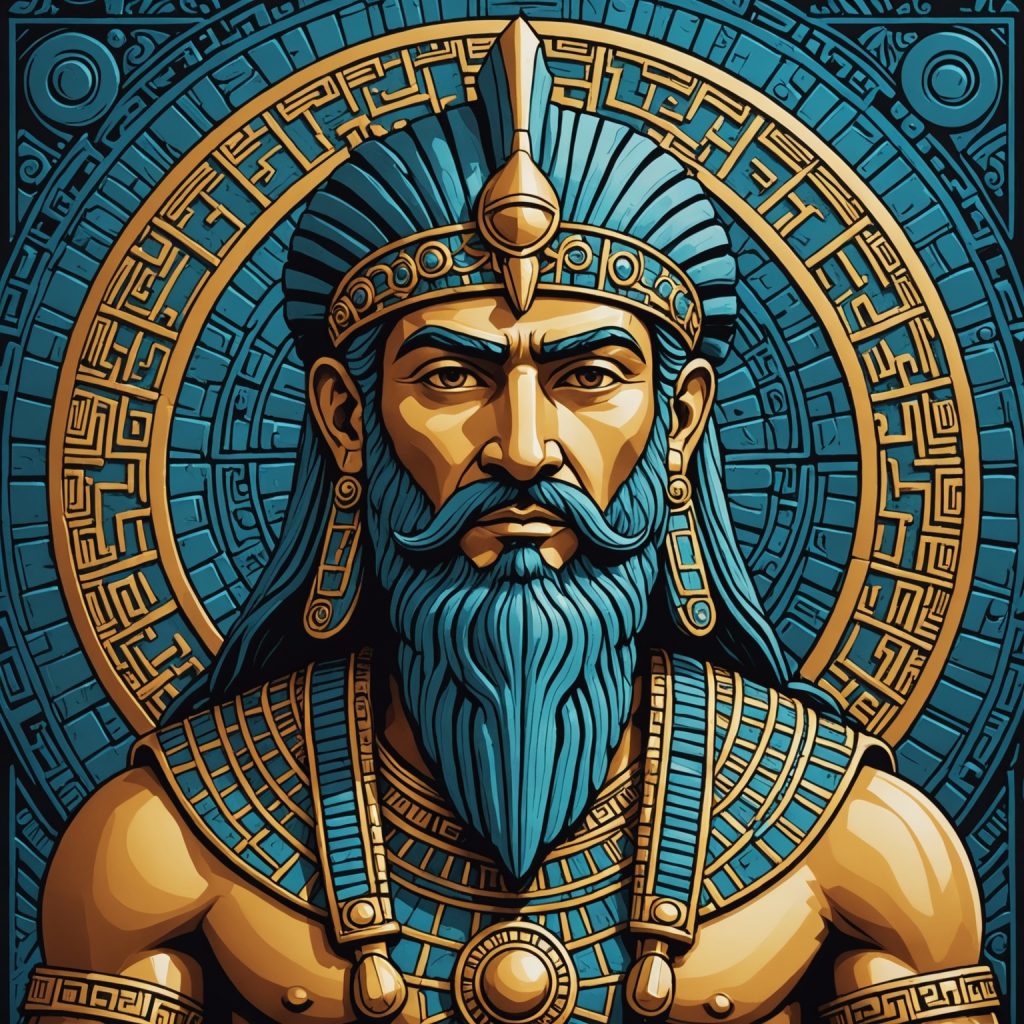Enki is a major deity in Sumerian, Akkadian, and Babylonian mythology, primarily known as the god of water, wisdom, creation, and magic. His name means “Lord of the Earth” (EN = Lord, KI = Earth). Enki is one of the oldest gods in Mesopotamian religion and is associated with the life-giving freshwater called the abzu (or apsu), an underground reservoir that nourishes the earth.
He is typically depicted as a bearded man with flowing streams of water, sometimes containing fish, emerging from his shoulders or holding a vessel of water. He often wears a horned crown, symbolizing divinity.
Enki is the son of the sky god Anu and brother (or in some texts, consort) to Ninhursag. He is considered one of the Anunnaki, the great gods of the Mesopotamian pantheon. His consort is Damkina (or Damgalnuna), and together they fathered Marduk in Babylonian tradition.
As a creator deity, Enki played a key role in the formation of humanity, often portrayed as intervening with wisdom and compassion. He is known for his intelligence, trickster-like nature, and for defying cosmic orders to protect humankind, such as during the myth of the Great Flood where he warns a mortal (Ziusudra or Atrahasis) to build a boat.
Enki is also the patron of arts, crafts, exorcism, and alchemy. In esoteric interpretations, he symbolizes deep inner knowledge, sacred water as consciousness, and the harmonizing of divine order with human freedom.
His energy is watery, adaptive, and enlightening—connected to the activation of consciousness, especially through language, symbol, and intuitive revelation. Enki’s archetype is one of innovation, benevolent subversion, and spiritual insight.
